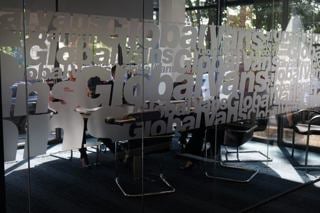It takes no time for Arval chief executive Jean-Marc Torre to cut to the quick. As soon as the pleasantries are over he sets the tone for the rest of the interview: “Our objective is to be a leader in contract hire.”
It’s a claim many have made – indeed, few would not have an aspiration to lead their field in some way. How does Arval want to be a leader?
“Trust of our customers; innovation and quality of product and service; size and robustness for a secure future,” Torre replies, without pause.
He believes that Arval’s growth last year – risk fleet size was up almost 10% – is proof that more people are trusting the company with their business.
Prior to his appointment at the helm of the contract hire and leasing division, Torre worked at parent company BNP Paribas’s banking operation.
He remains a member of the banking board which puts him in a unique position to pass judgment on funding concerns at a time when many are questioning banks’ appetite for vehicle leasing.
“Arval is a pan-European leader in more than 70 countries so the bank is committed to this business,” he says. “It’s different to some of the UK-based bank-owned businesses.”
He adds: “Our business is not short-term. What we do today has consequences in four or five years’ time. Our shareholding and financial backing is important and gives us this long-term approach.”
Founded in 1989, the company has grown rapidly to sit at No 4 in the FN50. Arval has been an ever-present in the top 10 since 2000 when it merged with the much larger PHH.
Adding PHH’s 45,000 risk fleet to Arval’s 18,500, then trading as Ryland Multifleet, created a 70,000 operation.
Since then, Arval has consistently hovered about the 75,000 mark before last year’s uncharacteristically sudden surge to 80,753 vehicles. Expect Arval to overtake third place Lombard this year.
That the recession appears to have had such a negligible impact on Arval’s expansion plans is testament to its balanced business model and resolute management of risk.
The leasing firm has its own residual value pricing model based on its historical performance in the used vehicle market. It doesn’t, as Torre puts it, rely on “outsiders that provide the RV price, but don’t take the risk”.
Arval developed the tool three years ago and says its pricing is consequently less volatile than the open market.






















Login to comment
Comments
No comments have been made yet.